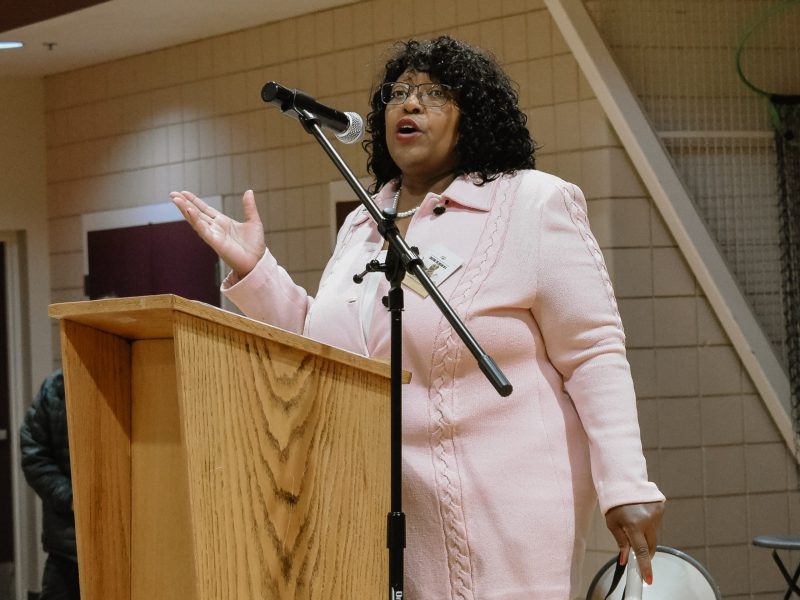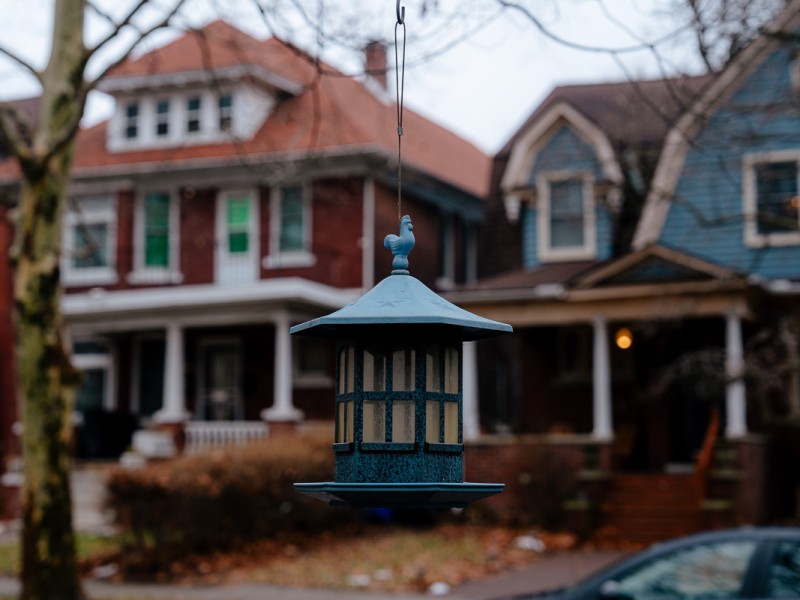What kept you in Detroit? Longtime residents fill us in.
We spoke with several longtime Detroit residents to get a sampling of what they think about all the changes that have taken place over their lifetimes.
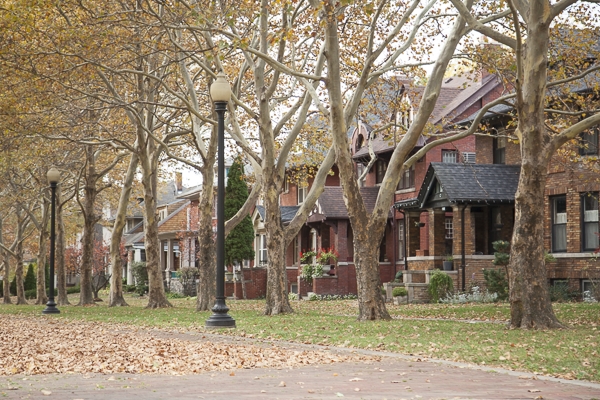
A couple months ago, we spoke with people who’d moved to Detroit less than three years ago to learn about their experiences so far — why they moved, what they liked, what they’d change.
But we also wanted to speak with longtime residents, people who’d lived in the city all or most of their lives, to get a small sampling about what they think of all the changes that have taken place over their lifetimes. Below are interviews with five Detroiters sharing their thoughts on the city, both past and present.
Michelle Ann May
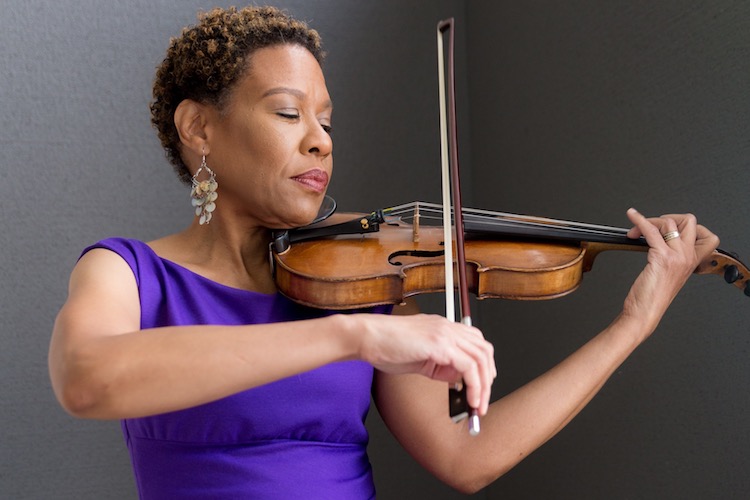
Age: 56
Occupation: Professional musician and counselor at Oakland Community College
Where did you grow up and where do you live now? I’ve lived in Detroit all my life. When I was 2 years old we moved into this house in Boston-Edison where I’ve been the rest of my life.
What are some of the most significant changes you’ve seen between when you grew up and now? The economy is the most significant thing. I grew up in a time when wages kept up with inflation. Think about that: we had a middle class!
This neighborhood had a diverse set of folks when I moved here. In this and other historic neighborhoods in the city, there weren’t only doctors or lawyers, there were also lots of blue collar people. To be quite frank, I wouldn’t be able to afford to buy my house right now.
When my father passed away, I was cleaning out his apartment and found old check stubs from the 70s. In today’s dollars, the man was making $100 an hour plus overtime working in the auto industry. He wasn’t an anomaly. Detroit used to be a city for most. We still had wealthy people and poverty, but more people could get a piece of that American dream.
What do you think about the more recent changes, developments downtown, neighborhood planning? Everyone wants to talk about shiny downtown and Midtown. That’s not a big change for me because I remember what it was like, shopping at Hudson’s, before it fell apart. That’s not new. What is new is the segment of the population that can participate in the change.
I’ll be fully excited about the changes happening in Detroit when our children are included. As an educator, I’m extremely concerned about the school system. Everybody’s getting all happy about the Q-Line and Bedrock, but there isn’t that same fervor in the news about what we’re going to do about our children. That bothers me because this is the segment of the population that will take our place and continue to move the city forward. And, through no fault of their own, they’re attending schools with crowded classrooms and teachers not being compensated adequately or getting the supplies and support they need.
What are some of your favorite places in Detroit? I’m old school, so new places, I don’t know. Rattlesnake Club, Savannah Blue. I like how the Avenue of Fashion is really coming up — I remember when it was the Avenue of Fashion. Being a musician, I love Aretha’s Jazz Cafe, Bakers Keyboard Lounge. Our Jazz Festival is the best in the country. This city loves music and art and theater.
I loved Belle Isle until that silly Grand Prix came around. Though it’s still a favorite place for me to go.
What place that’s no longer around do you miss the most? A lot of them. Because this place is my childhood. For example, I went to a really good elementary school that was five blocks from me. It’s no longer here.
I miss Hudson’s, the shopping, and downtown the way it used to be. We even had an amusement park, Edgewater Park.
What’s your favorite part about living in Detroit? Even though we’ve had an influx of new people, I still say that the people are my favorite thing. People define our institutions, the attitude Detroit has, how we’re depicted. It’s not the buildings, the houses, the parks — it’s the people that occupy those places. If this had not been a welcoming place for us, we would not have stayed. Detroit is a big small town. It’s like family. I don’t know if anyone from New York City can say that.
Why didn’t we leave? One, it felt comfortable here. The cost of living was manageable. There was a time during the height of the recession when I did get a little weary — there weren’t any city services, the cops wouldn’t arrive when you called, there weren’t any grocery stores. But then things started to turn around and we realized this place has really worked for us.
Some people say you must be happy about the price of your house and I say that doesn’t matter to me because I’m not going anywhere. Another reason I’m here is because my house has been paid for since 1970 — there’s no mortgage. I hope to die in my bed.
If you could change something about Detroit, what would it be? The school system. Completely overhaul it, pay teachers what they need, open up more schools so you don’t have 40 to 50 kids in a classroom. A lot of positive things would emanate from that. At one time you could count on getting a good education in DPS and then move on to a job and career and continue a positive economic cycle. I think we owe it to today’s children to make this thing work.
Amelia E Duran
Age: 39

Occupation: Co-directora of Garage Cultural, an arts and culture center in southwest Detroit.
Where did you grow up and where do you live now? I was born and raised mostly in southwest, but my father is from Chile so there was a period of about five years where we lived in Santiago. We came back in ’91 when I was 11. So I’ve been in southwest my whole life besides that little gap.
I grew up in a house that has been in my family for five generations on my mom’s side. In the late 1800s, they moved from Czechoslovakia to southwest Detroit and bought the house in 1905.
What are some of the most significant changes you’ve seen between when you grew up and now? Me and my peers, growing up in the ’90s, were surrounded by a lot of dilapidation. But even then we had a strong sense of pride for this city that no one else seemed to value or appreciate. There was no other option but to be super-embedded in your hood.
This moment in the city’s trajectory is a little scary. Even though we’re rooted in the neighborhood and have a long history here, it’s changing and we don’t know what things will look like in five or 10 years down the line as the area starts to develop and become less affordable.
I’ve spent my whole life working in my community and I’ve seen many glimmers of hope, small developmental wins, alleys getting paved, park renovations, or being able to build new housing for low-to-moderate-income families. Then everything came crashing down, with extreme disinvestment, lack of funding, and foreclosures. Now it’s being flipped back around on its head and we’re in a situation where everything we were fighting for, investments or developments things we believed would increase our “quality of life,” are now part of what we’re scared of. It’s very psychologically confusing.
What do you think about the more recent changes, downtown developments, neighborhood planning? It’s exciting but part of me feels alienated from it. One example: Ford’s redevelopment of Michigan Central Station. Of course you don’t want to keep looking at the things that created subliminal traumas in our psyches, things you perceived as representations of how much others valued both you and your city. But I don’t know what the opposite aesthetic will do for people like us, who don’t necessarily fit into the same economic class as those who want to come here now.
I’m a mile away from downtown, but I’m so embedded in community work that I don’t go that often. When we have visiting artists in town and I’m showing them around, sometimes I tell them that I feel like I’m looking at the city from the same perspective as them, with brand new eyes, because every time I come it’s changed.
What’s your favorite part about living in Detroit? The communities, their social fabric and grit. Growing up here, I always felt like I was living in a small town inside a big city because everyone knew each other. I value and appreciate that, which is why I don’t want to see it change too drastically. That’s something that held this area together in a very beautiful, resilient way.
I love the fact that growing up in this community allowed me to also stay very connected to my cultural roots, the Latin American traditions, language, food. Once, I had a t-shirt made that read, “What’s my ethnicity? Southwest Detroit.” It’s like that, communal identity can become someone’s main cultural identifier, especially if your cultural heritage comes from multiple places. There are large Eastern European and African-American populations here too. I’m not crazy about people calling this place Mexicantown — I live in southwest Detroit.
What are some of your favorite places in Detroit? It changes all the time and I don’t like to pick favorites.
What place that’s no longer around do you miss the most? It’s not necessarily a place but an event. There used to be an annual Mexican Festival held every summer at Hart Plaza in the 90s to early 2000s — it started earlier than that, but I was too young to remember. It was the event that everyone in the neighborhood looked forward to the most every year, where you could expect with certainty to see pretty much everyone from the hood that you hadn’t seen for one day. There was a Miss Mexico Pageant, tons of bands would perform, and local vendors/restaurants sold food and other traditional goods.
If you could change one thing about Detroit, what would it be? At this particular time, I’d change our priorities. We’re putting a lot of energy and investment into our aesthetics, and in attracting large scale developers with money. But the efforts really need to be more holistic than that. We need to build up our communities and support the smaller groups doing amazing localized efforts. Because if you don’t focus there, you’ll be losing the heart and soul of the city. Shiny buildings downtown don’t do anything for me when there are some really challenging realities still negatively affecting kids in our communities.
I’m worried about how eager we are for investment. When you’ve been starving for such a long time and someone comes along to offer you food, you don’t care what it is or if it’s good for your body. We’re being fed a lot of garbage, figuratively speaking.
Nehemiah Montgomery
Age: 63
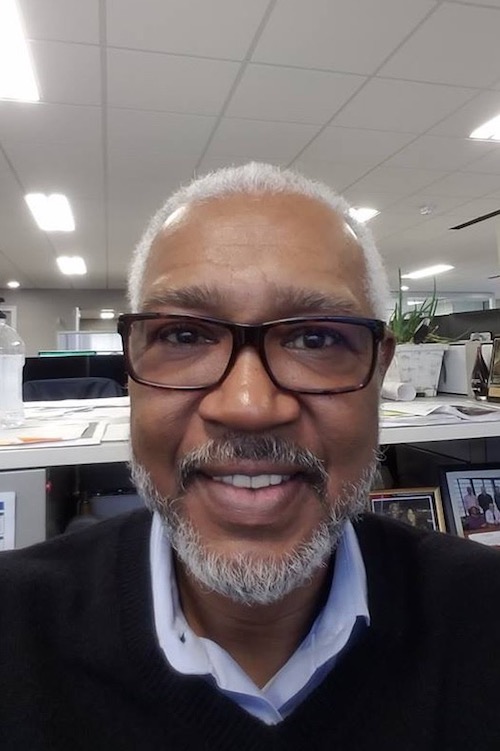
Occupation: Principal analyst at DTE
In what part of the city did you grow up? The west side, over by Central High School close to Boston Edison. Then a little further west, around the Livernois-Grand River area.
I spent most of my life here except for the first two years of high school when I went to a seminary in upstate New York and for three years in the Marine Corps. I’ve been back ever since.
Where do you live now? Lafayette Park. I’ve been here for 12 years.
What are some of the most significant changes you’ve seen between when you grew up and now? A lot. I think of it as an inverse bell curve. We were really high, everyone was doing well with plenty of jobs. Then the riots hit, tore out the heart of parts of the west side, and went down from there. When I was a kid, 12th Street was rows of restaurants, stores, bars. Linwood was the same way. People look now at the street now and can’t imagine that.
In last six, seven years, I’ve seen things start to come back because there’s been an influx of money post-bankruptcy. But it was pretty bad for about 20 to 25 years. I’ve been fortunate to have a job working at the same company for 40 years.
What do you think about the more recent changes, downtown developments, neighborhood planning? I think it’s good. It used to be my wife and I could go to any restaurant downtown and get a seat without a reservation. There were very few people on the street at night, not a whole lot going on. It’s great to see all the life that’s come back, at least in downtown, Midtown, Corktown.
I feel like I’m lucky to be here in Detroit as it comes back. It’s good to be able to see a section of life in the city that’s really thriving. When I was in my 20s, there was no Riverwalk, no Dequindre Cut. Those are things I’m glad I stuck around for.
But gentrification has happened in every major city and I do worry about that. One of the worst examples is the Bay Area, but it happens everywhere. I think it’s gonna happen here too. If the mayor could push a little money into the neighborhoods, it would help a lot.
What place that’s no longer around do you miss the most? Tiger Stadium. There are a few bars that aren’t here anymore. But I’m adaptable, I don’t have a big problem with change. Time moves on and you have to move on with it.
What are some of your favorite places in the city? Gather, Vicente’s Cuban Cuisine, Shangri-La, Savannah Blue, Lafayette Coney Island, Mudgie’s. Belle Isle for recreation. And I like getting my hair cut at The Social Club Grooming Company.
What’s your favorite part about living in Detroit? Family. My sisters are here, all my in-laws are here. My parents passed away and then my wife became a caregiver for her parents and that kept us here. There’s a lot of people here who look like me and I feel comfortable.
If you could change something about Detroit, what would it be? The attitude that education is not important. If I could talk to parents and say, look, you don’t understand the damage you’re doing by not teaching your kids about education. I don’t necessarily mean going to college; you can become an apprentice. There’s so much you can do.
Arlene Frank
Age: 63
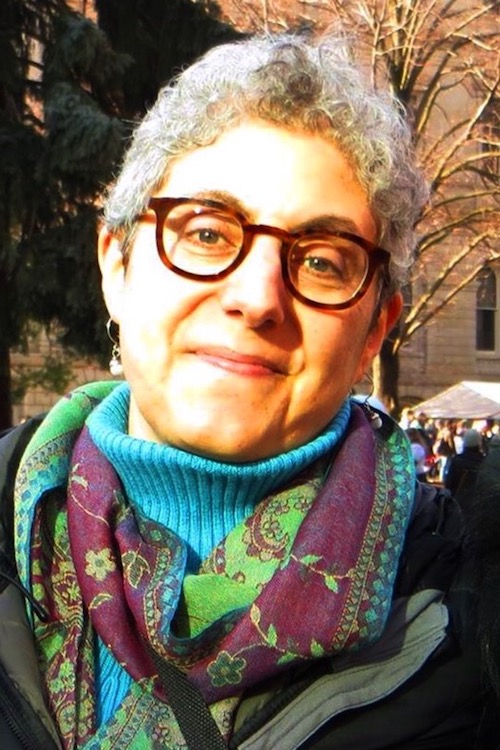
Occupation: Executive Director, Isaac Agree Downtown Synagogue
Where did you grow up? Northwest Detroit around 7 Mile and Greenfield, past what had once been an old Jewish neighborhood.
Where do you live now? Lafayette Park for the last 32 years.
What are some of the most significant changes you’ve seen between now and then? There have been several major changes in that time. First there was an emptying out of the city. There was a more vibrant downtown in terms of shopping and stores. I went to the Hudson’s flagship store all the time. And there were more intact neighborhoods.
Then more recently there’s been an uptick in things happening downtown, places or business locating downtown, shopping and entertainment and residential growth. Then also, some neighborhoods experiencing an increase in interest and sales of homes.
My parents stayed in the home I grew up in until I was in college. They were very committed to living in the city and our home and our neighborhood. They were Holocaust survivors, refugees who believed in the value of all people. Other than during college, I wanted to live in the city because I love Detroit, grew up in it, and it meant a lot to me. I wanted to be somewhere familiar and be around a diversity of people.
People thought that me and my husband would be crazy to buy and we’d never get our money’s worth. The joke is now that I wouldn’t be able to afford to buy my own home today. The value ended up increasing in a way I don’t think anyone could have predicted. But we liked being in Lafayette Park because it had open feel while also being close to downtown. And it had an interesting mix of residents.
What do you think about the more recent changes, downtown developments, neighborhood planning? I really think about this a lot. I want there to be a vibrant and busy downtown, and I want there to be a sense of inclusion for those people who have been a part of the city for a long time. I want it to embrace new people and businesses while respecting and honoring those who’ve been the backbone of the city for many years. I want it to be inclusive of all those who have and want to call Detroit home.
That can at times be challenging, and raise issues which I hope are an opportunity for discussion and understanding for how best to develop a city in a way that’s is respectful and joyful and inclusive.
What are some of your favorite places in the city? The Dequindre Cut and the Riverwalk. I really enjoy walking around both Lafayette Park and downtown. And always Belle Isle.
What place that’s no longer around do you miss the most? The Hudson’s Department Store. I’m really sad that there wasn’t the vision or will or understanding to keep it until, as we see now, so many buildings deemed non-rehabitable have become something productive. It was beautifully built and constructed inside, really a treat for the eyes.
What’s your favorite part about living in Detroit? Being part of a city that has so many different kinds of people. There’s always been a strong immigrant presence — and I strongly relate to that as a child of immigrants. It’s special being in a city that has a deep history, great potential, and incredible people who are looking to keep it that way.
If you could change something about Detroit, what would it be? I would like to see deeper and more wide-ranging discussions about what it means to reenergize the city, have more inclusive opportunities, more thoughtful planning.
There are a lot of ways that development of the city impacts people differently — and I’m an example of someone who really benefits from much of the development. But that doesn’t mean that everyone does or that it takes into consideration long-standing issues, who the population is, and how best to move forward. My experience doesn’t accurately reflect all that’s happening in the city and how those future plans affect its residents.
Barb Martin
Age: 71
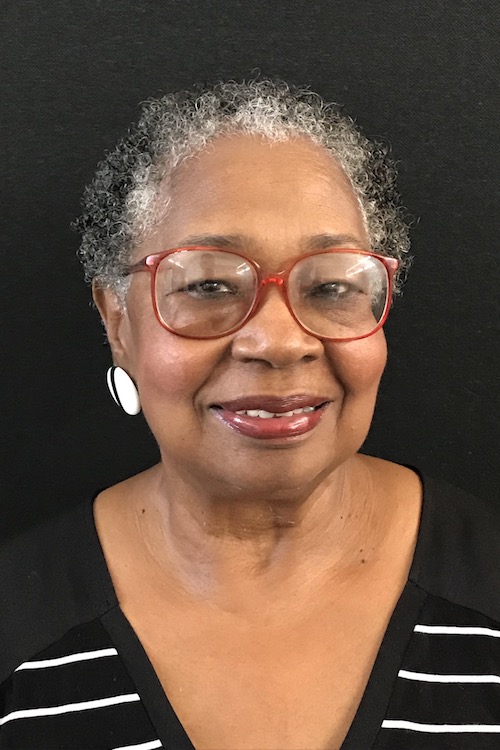
Occupation: Retired. Formerly an administrator at the Detroit Public Library.
Where did you grow up and where do you live now? On the east side. For 40 of my 70 years, I’ve lived in the same house.
What are some of the most significant changes you’ve seen between when you grew up and now? Growing up, it was a working class neighborhood. My parents and brothers and I were maybe the second or third black family to move in. White flight didn’t follow right away and there weren’t any problems. We played with the other kids on the block.
But by the time I graduated middle school, it was an all-black neighborhood. Nice, working class. And we didn’t think about it much — we were just average folks. We had to be home by the time the street lights came on, but we could go out on Halloween until 10 o’clock at night.
We had wonderful little stores nearby: a dress shop, barbershop, grocery store, confectionary, a couple of bars where adults went. My father would drive us to the Rialto Theater and we’d go see two movies and cartoons for 50 cents. I went to Cass Tech for high school and had to take the bus, which was perfectly safe. I have great memories riding the bus with friends. Life was safe and pleasant. I took it for granted.
I got married and came home and bought a house next door and raised a family. That period of time things started changing — crime became a problem. I put my children in Catholic schools for safety more than anything else.
I went to grad school in Ann Arbor found that I missed Detroit. My husband at the time didn’t want to come back but I did. There’s no place like Detroit.
What do you think about the more recent changes, downtown developments, neighborhood planning? It’s like a different world when I go downtown now. I don’t dislike it, but it would have been nice if it happened when I was younger. But it didn’t and I don’t begrudge it.
I see positive change in my neighborhood. Of course everybody wants more and you want it faster. There’s also some areas that are completely neglected and you get tired to have to scrap for every little thing. So you want some easy wins and those are few and far between.
I wish that the city — and I realize prior to the bankruptcy it was bleeding money — had the priorities of people here in mind a little sooner. In the changes happening now, I appreciate them and enjoy them if they’re to our benefit, but I’d like to have been consulted.
What are some of your favorite places in Detroit? I love Pingree Park, the little park in my neighborhood. They put in a little trail there recently, which is something I’ve been talking about to nobody that counts for years. I was not involved, but I guess I’m glad it just showed up.
I see it like this: You’re in your house and someone comes in and starts remodeling. And you ask, “What are you doing?” “Oh I’m remodeling this room right here.” So what do you say? “Get out of my house, you’re not going to remodel nothing”? Well that’s like cutting off the nose off to spite the face. So instead you say, “Well that’s fine.” But do you say, “Oh thank you thank you that’s so wonderful”? No, I don’t feel like saying that either.
What place that’s no longer around do you miss the most? Bo-Mac’s. It was a little downtown bar, a very nice and unpretentious club. They had live blues and R&B music; you could get wings. It’s a parking lot now.
What’s your favorite part about living in Detroit? I like the people. I like us. We’re unpretentious and we can move in a lot of different circles with comfort. We have a lot to give and we do. I like living close to the water. I drive through Belle Isle at least twice a month and more in the summer.
I love the music here. I don’t go as much as I’ve gotten older, but I used to go to the festivals downtown. A lot of different people together, sharing culture.
If you could change something about Detroit, what would it be? Public transportation. I’d make it more efficient and quick.


